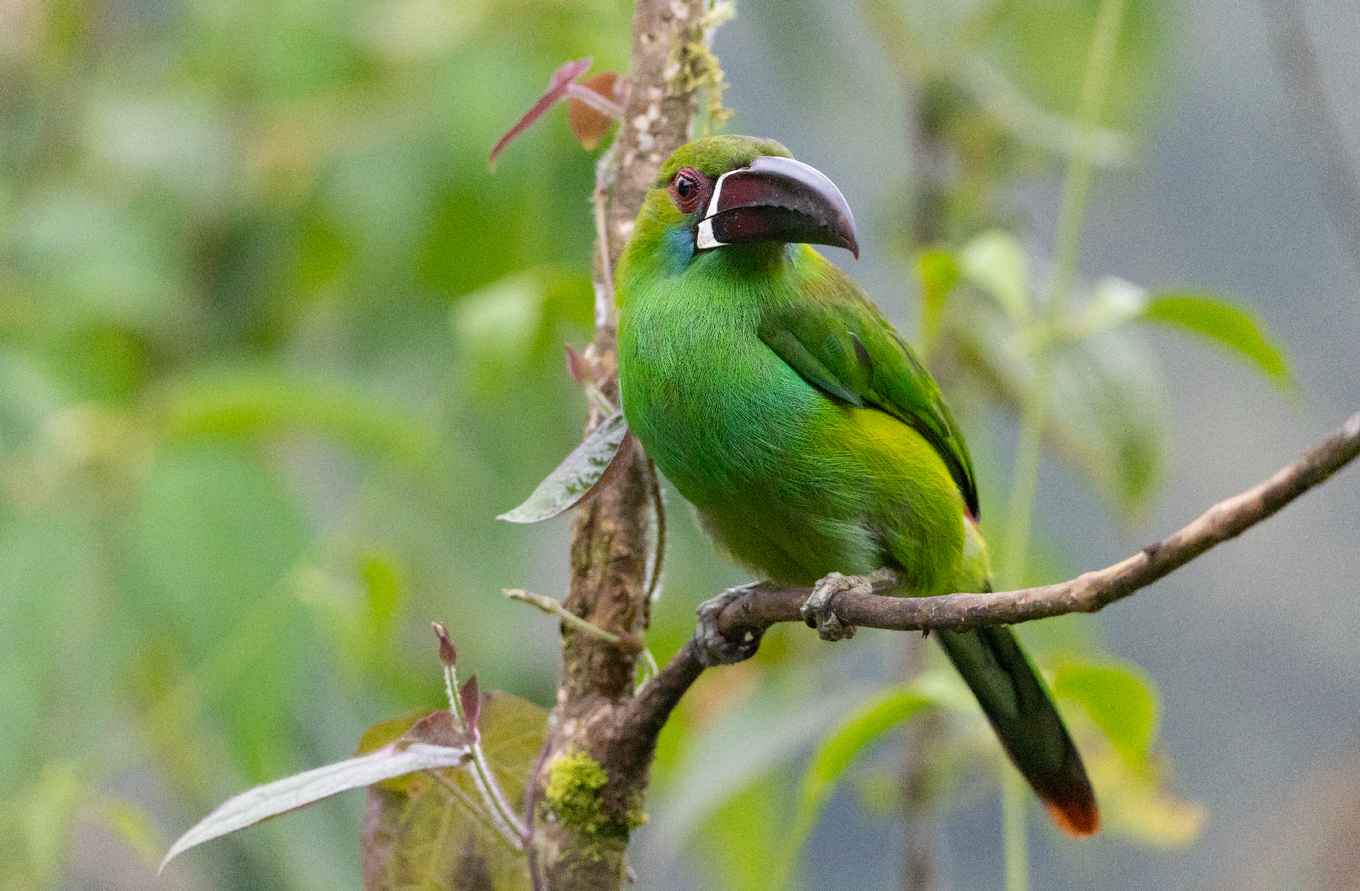Downsizing of animal communities severely affects tropical ecosystems
2 April 2020

Animal species in tropical rainforests increasingly disappear due to overhunting, deforestation and forest fragmentation. Large-bodied species, which are particularly vulnerable to changes, decline at a comparably faster rate than other species because they are preferentially hunted or more strongly affected by habitat loss and degradation. The new study shows that the loss of large-bodied animals, also called downsizing of ecological communities, has severe consequences for the functioning of rainforest ecosystems.
Fruit-eating animals
Fruit-eating animals play an extraordinary role in tropical ecosystems. They constantly move around the seeds of animal-dispersed plants and thereby affect dispersal, gene flow and genetic structure of plant populations. It is estimated that more than 70% of the tree and shrub species in tropical forests depend on fruit-eating animals for their seed dispersal. ‘Especially the loss of large-bodied fruit-eating animals such as toucans, primates and tapirs has severe consequences for the functioning of tropical rainforests because these animals contribute disproportionally to long-distance seed dispersal events of plants’, explains Dr W. Daniel Kissling, researcher at the UvA Institute for Biodiversity and Ecosystem Dynamics and co-author of the study.
Loss of long-distance seed dispersal
The most important finding of the study is that the commonly used measures of structural robustness of ecological networks severely underestimate the consequences of animal extinction and downsizing for ecosystem functioning. The simulations show that downsizing leads to much stronger functional than structural losses. For instance, when the 10% largest fruit-eating birds disappear, the long-distance seed dispersal will reduce by 40%, while the structural loss is only reduced by less than 10%. ‘This is because the species that go extinct first are those who contribute unique services and keep the rainforest function’, says researcher Dr. Isabel Donoso, who led the study at the Senckenberg Biodiversity and Climate Research Centre in Germany.
Short vs long-distance dispersal
So why should one care if in the future seeds of rainforest trees are dispersed at short-distance rather than long-distance? First of all, long-distance seed dispersal helps the genetic exchange between forest patches and makes them more resilient to change. What’s more important: the nearer a seed remains to the parent tree, the less likely it will germinate and grow. Because large-bodied fruit-eating birds predominately disperse large seeds, tree with large seeds are the ones supposedly losing out.
Future rainforests
‘Future rainforests will probably look very different in terms of tree composition than the current ones. Other studies have already shown that such future rainforests will likely be able to store much less carbon,’ explains Donoso. This is because trees that are likely to be lost are those dispersed by large animals. They also have a high biomass and high wood densities, thus storing large amounts of carbon. ‘Protecting large-bodied animals in rainforests is therefore important for biodiversity conservation and for maintaining the services that tropical rainforests provide to us’, concludes Kissling.
Publication details
Isabel Donoso, Marjorie C. Sorensen, Pedro G. Blendinger, W. Daniel Kissling, Eike Lena Neuschulz, Thomas Mueller, Matthias Schleuning: ‘Downsizing of animal communities triggers stronger functional than structural decay in seed-dispersal networks’, in Nature Communications (2020). Link: https://doi.org/10.1038/s41467-020-15438-y